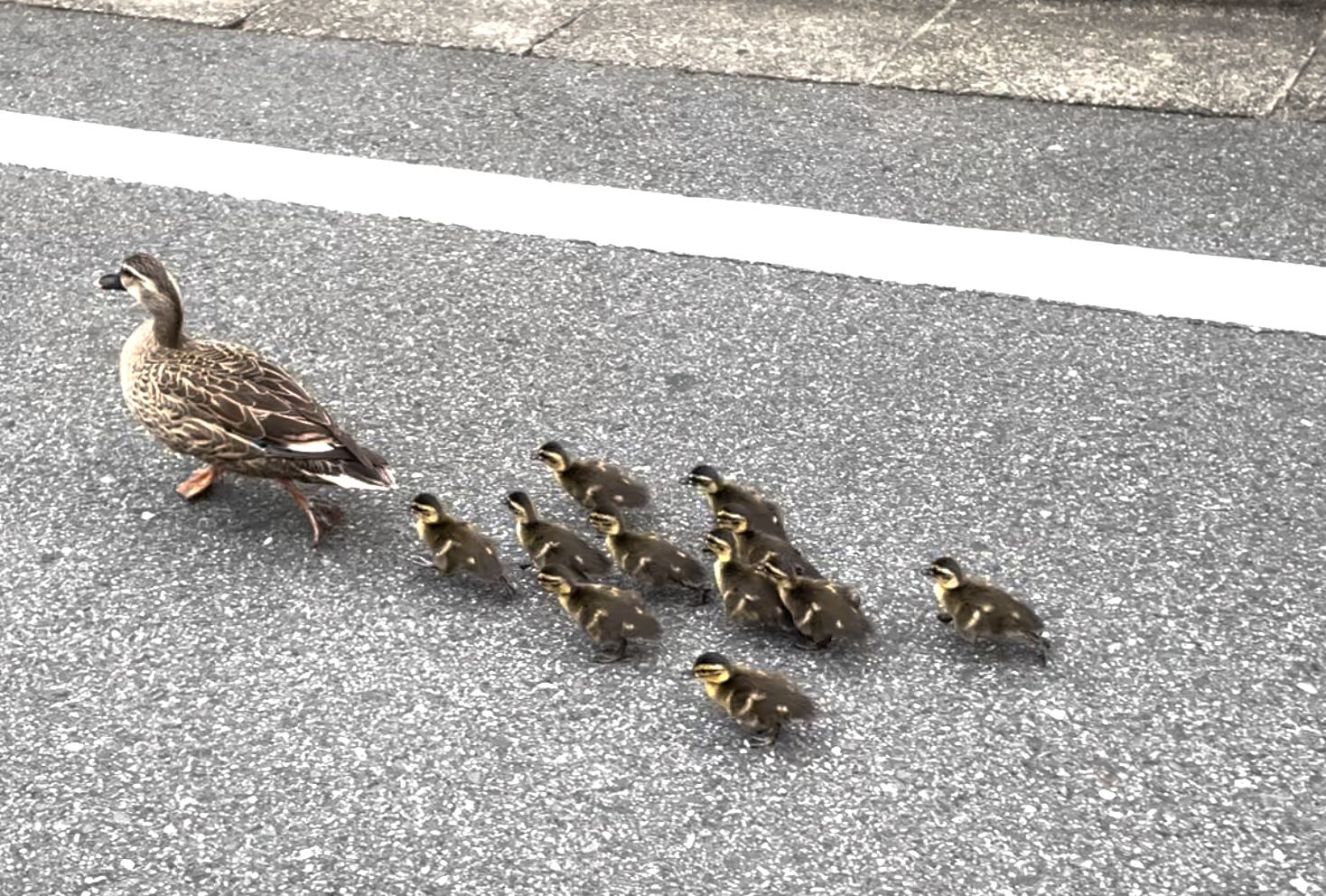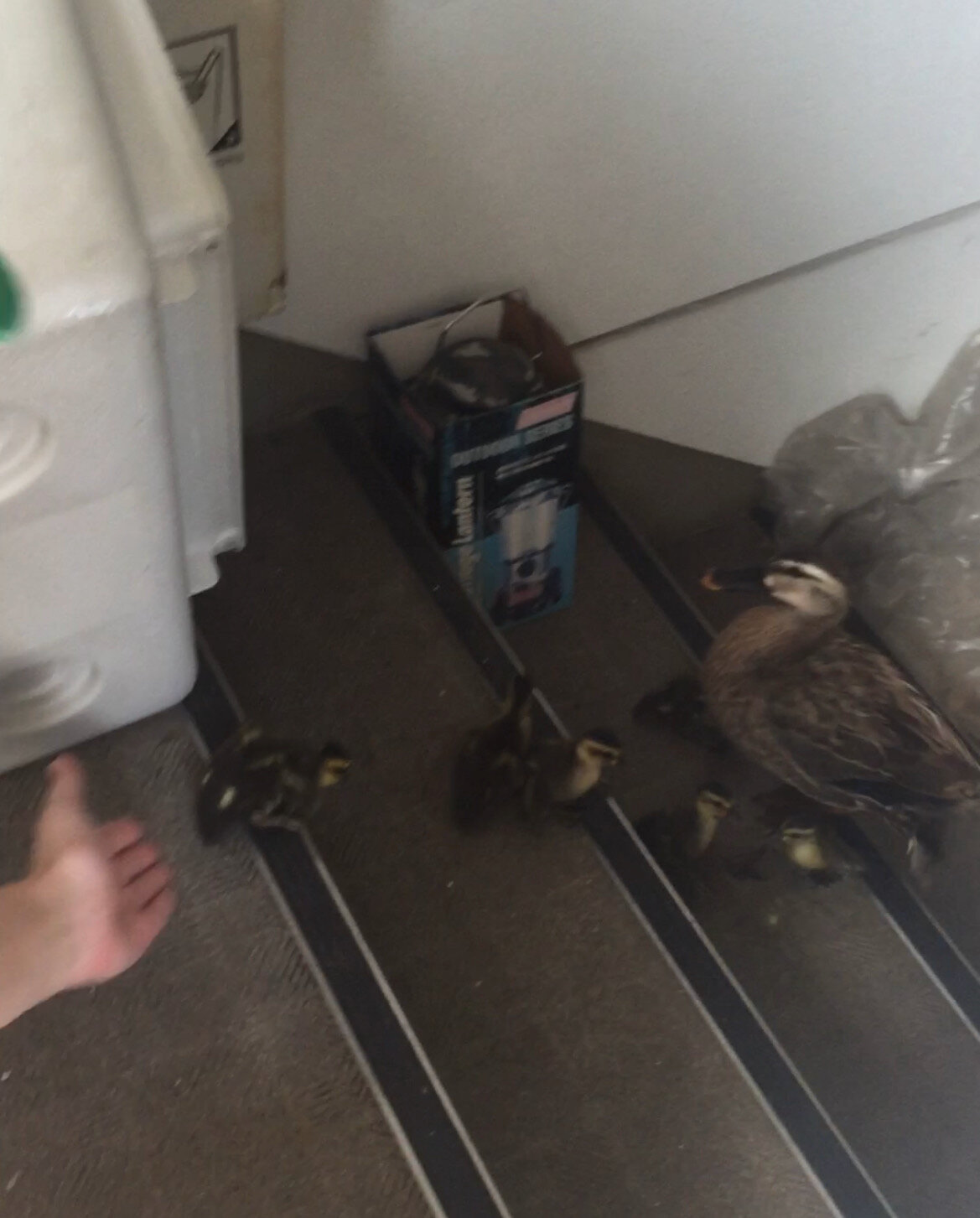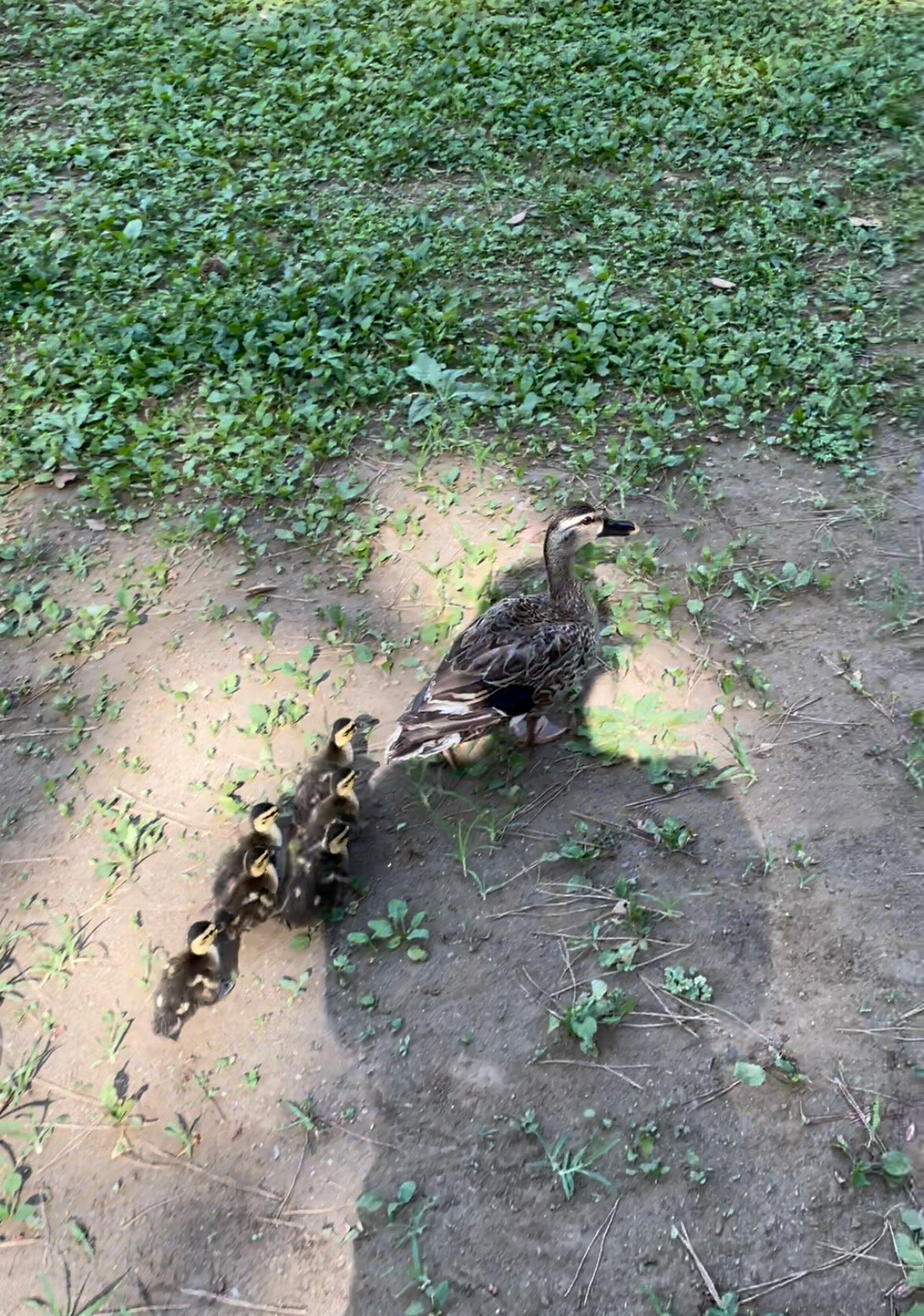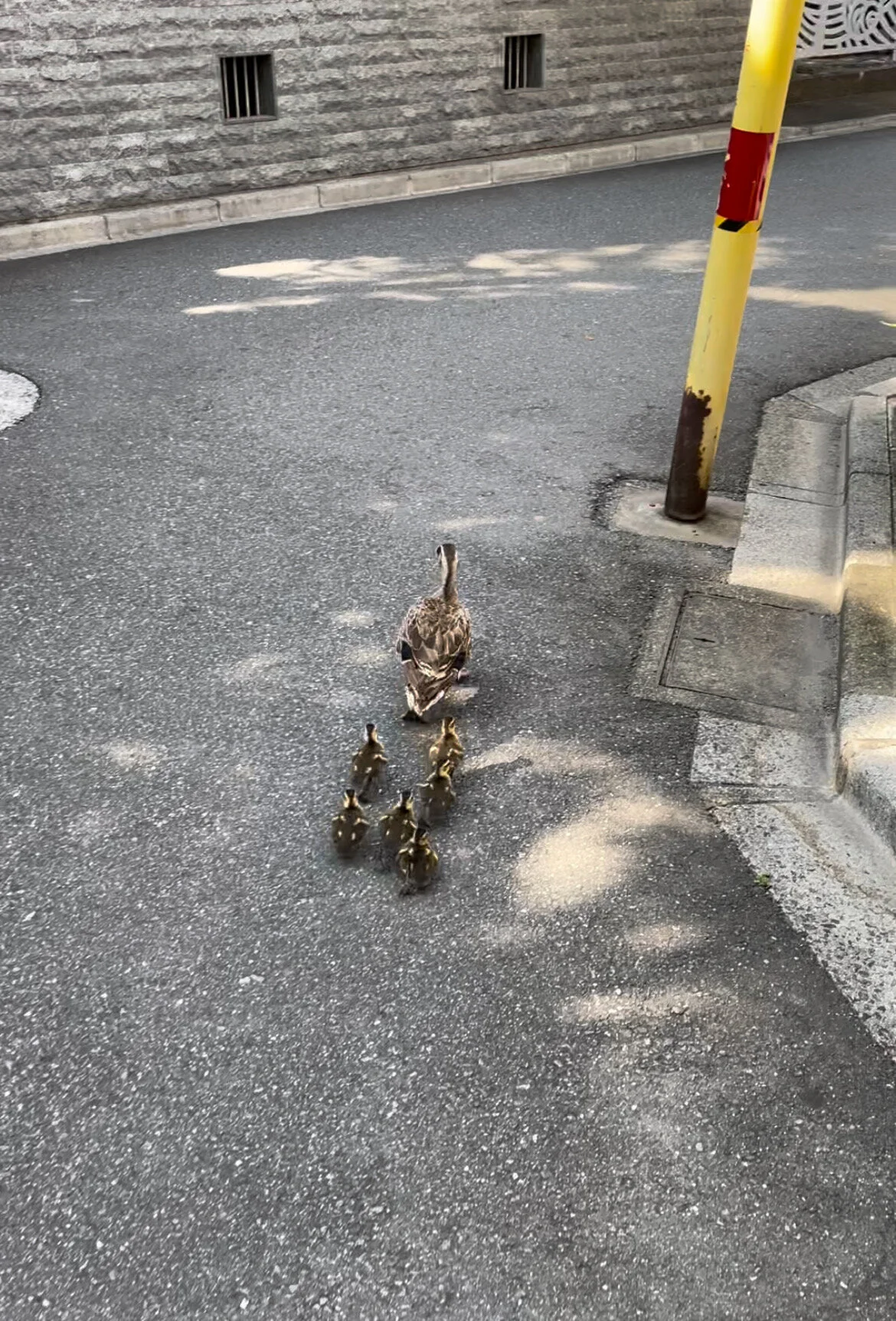Last week, we found the duck, nestled in thick bushes on another part of our rooftop. The bird we’d assumed had decided against close human contact and battling two flights of stairs this year, had returned.
Questions regarding the intelligence of that choice aside, we were stuck with a belated discovery and no way to measure an estimated time of arrival of the ducklings. According to Google, we’d learned last year that mallards will lay an egg every one to two days. Once she has laid her entire clutch, the clock to duckling time starts. During this 28-30 day period, we noticed last year that the duck started to line her nest with downy feathers. Approximately 10 hours after hatching, the ducklings are dry and ready to leave the nest for the closest body of water. This year, by the time we found her new nest, the duck had already lined her nest with her feathers. There was no way to estimate when the ducklings were due.
Google will tell you that ducklings normally hatch at night and thus are ready to leave the nest around early morning. I will tell you that in the past two years, this has not been the case.
Last year, my dad, curious about the duck, wandered up to the roof and found a cluster of ducklings huddled in a corner of the rooftop in the late morning. This year, parental concern for children that are neither human, nor mine, had me checking the roof to make sure that the enthusiastic cawing of crows wasn’t related to a duckling lunch.
I was wrong. I saw a tuft of downy, dark brown fur on the stairs and sprinted up to the roof, anticipating a bloodbath. Instead, I found two giant crows eyeing a mallard that was attempting to find cover in a completely exposed area. With her eleven ducklings. I screamed. My currently hard-of-hearing parents didn’t hear me. I screamed again (and again and again) while making large frantic circles with my arms to shoo away the crows.
Once my parents recognized my screaming, our scant, half-joking preparations, consisting of several pieces of cardboard, were speedily produced. Stairs were navigated much more smoothly this time, even with 11 ducklings trailing behind her. Two neighbors we happened to run into took a piece of cardboard each and helped us herd the duck towards water.
We chose to take a side street this time, to avoid the traffic on the main street that the duck had chosen last year. Unfortunately, it was a Sunday, and taking side streets meant children.
I have no beef with children. I think most of them are fun and hilarious. Although I have none of my own, I understand that raising children is a feat in itself and that sometimes, even if the parents are both certified saints, they can end up with a kid with a shitty attitude. I don’t blame the child for whatever antisocial behavior results. I just blame the parents.
And that’s exactly what I did when some 8-year-old shouted at us that we were “SO MEAN” for “CHASING THAT DUCK.” He repeated it before his mother let her uncontrollable child down off of her bicycle and he proceeded to try to get as close to the duck as possible. Another child, a girl of about 10 to 12, did the same, repeatedly running towards the duck. I asked both to stop, to not get too close and frighten her. They looked at me, like they were testing how much they could get away with, while they continued their shitty behavior. Their respective parents did nothing.
Given that my own mother would have had no problem beating me in public if I actually yelled at the kids, I held my tongue. The duck nearly ran past the bridge, terrified of the press of children crowding her. She finally recognized the river and flew down; we helped the ducklings onto the ledge while the human children reached out, desperate to touch a duckling for no reason than to say that they’d done it. After the ducklings were all safely in the river with their mother, the strangers we had collected along the way made small talk about the ducks. Meanwhile, the children and their respective parents vanished, without so much as a disingenuous apology for the trouble.
“Oh, stop, they’re kids, they can’t help themselves,” my mom said later.
“Can’t help themselves? I didn’t act that way when I was their age,” I said.
“Well, just because you didn’t, doesn’t mean-“ she started.
“Oh that’s funny, you know why?” I said, “because you made sure I didn’t.”
“Ok, ok,” my dad interjected. I dropped it because I knew I was right. My mom dropped it because she either knew I was right but didn’t want to be the bitch I’m not afraid to be, or couldn’t believe the heartless asshole I’d become. Either way, she knew, and I knew that she knew, that it could have been a lot worse. That at the very least, she didn’t raise a shitty kid.
[This is a long video but I got a lot more footage this year and felt it would be a shame to make a shorter one. Enjoy!]

















